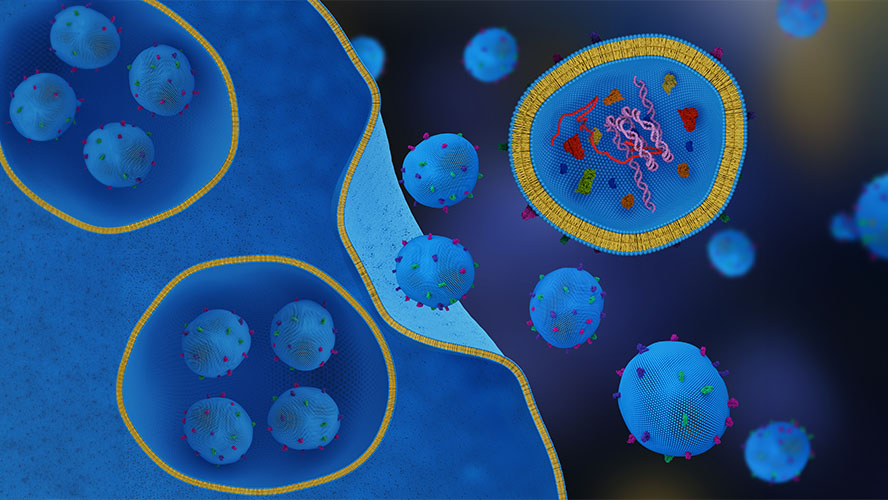
Researchers at the Schroeder Arthritis Institute have gained valuable insights into the biological basis of ankylosing spondylitis, a debilitating form of arthritis that causes chronic inflammation of the spine.
Ankylosing spondylitis is a challenging condition to manage, in part because the underlying disease processes are not well characterized and there is no definitive test for its diagnosis.
To improve patient care, efforts are under way to identify gene- and protein changes that contribute to the condition and could serve as disease signatures, called biomarkers.
One type of biomarker that is generating interest among researchers is microRNA (miRNA)—short strings of RNA that alter gene expression.
“Altered expression of microRNAs and proteins can play a key role in ankylosing spondylitis by triggering immune dysfunction and inflammation, but it’s unclear exactly how this occurs,” says Dr. Robert Inman, Co-Director and Senior Scientist at the Schroeder Arthritis Institute. “Clarifying the genetic and immunologic features of the condition is a critical step towards developing reliable diagnostic tests and targeted therapies.”
Dr. Inman and his team analyzed miRNAs and proteins that are present in exosomes—tiny vesicles that cells release to communicate with other cells.
“We studied exosomes because their role in intercellular communication implicates them in immune dysregulation,” explains Dr. Fataneh Tavasolian, a postdoctoral researcher in Dr. Inman’s lab. “By analyzing exosomes and their molecular contents, we can determine the messages that cells send to one another in ankylosing spondylitis and begin to unravel the molecular processes that underlie inflammation and other symptoms of this disease.”
The researchers isolated exosomes from the plasma of 40 men and women with and without ankylosing spondylitis and comprehensively analyzed their miRNAs and proteins, and effects on immune cells.
Exosomes from people with ankylosing spondylitis had elevated levels of two surface proteins that are linked to inflammation. When exposed to a type of immune cell—called T cells—these exosomes triggered the release of other proteins that promote inflammation.
The exosomes also decreased the activity of regulatory T cells—a specialized subpopulation of T cells that suppress runaway immune responses.
Collectively, these findings suggest that exosomes in people with ankylosing spondylitis have unique protein profiles, which could contribute to chronic immune activation and inflammation.
The team also identified 24 miRNAs that were differentially expressed in people with and without the condition—22 of which were consistently expressed at higher levels in people with the condition.
One miRNA—miR-30c-5p—stood out because of its role in regulating immune cell function.
Pinpointing the miRNAs that differ between people with and without ankylosing spondylitis could ultimately resolve the genetic basis of the disease and inform the development of therapies aimed at restoring immune balance.
“The insights that we have gained from this study could open doors to disease biomarkers that support early diagnosis and intervention, as well as new treatments that target underlying disease processes,” concludes Dr. Tavasolian.
This work was supported by Spondyloarthritis Research Consortium of Canada, the Schroeder Arthritis Institute, the Krembil Foundation, the Arthritis Society and the UHN Foundation. Dr. Robert D. Inman is a Professor in the Departments of Medicine and Immunology at the University of Toronto. Dr. Fataneh Tavasolian is a postdoctoral researcher at the Schroeder Arthritis Institute.
Tavasolian F, Lively S, Pastrello C, Tang M, Lim M, Pacheco A, Qaiyum Z, Yau E, Baskurt Z, Jurisica I, Kapoor M, Inman RD. Proteomic and genomic profiling of plasma exosomes from patients with ankylosing spondylitis. Ann Rheum Dis. 2023 Aug 2:ard-2022-223791. doi: 10.1136/ard-2022-223791.

Exosomes (illustrated above) are created by cells and secreted to facilitate intercellular communication. Once released, they enter the bloodstream and deliver their contents—including miRNAs and proteins—to other cells throughout the body.




